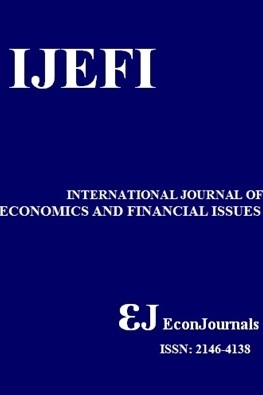How Does Volatility of Characteristics-sorted Portfolios Respond to Macroeconomic Volatility?
How Does Volatility of Characteristics-sorted Portfolios Respond to Macroeconomic Volatility?
Characteristics-sorted portfolios, Macroeconomic Volatility Spline-GARCH, Egyptian Exchange.,
- Başlangıç: 2011
- Yayıncı: İlhan ÖZTÜRK
The Effect of Palestinian Banking Credit Facilities on the Palestinian Economy
Human Capital Investment and Economic Growth in Saudi Arabia: Error Correction Model
Indra Siswanti, Ubud Salim, Eko Ganis Sukoharsono, Siti Aisjah
Dynamics of Service Trade in Association of Southeast Asian Nations: Process Towards Integration
Arkan Fadhil, Fithra Faisal Hastiadi
Federica DONİ, Silvia ROSSETTİ, Roberto VERONA
- Mu’izzuddin, - Taufik, Reza Ghasarma, Leonita Putri, Mohamad Adam
İsmail Ben DOUİSSA, Tawfik AZRAK
Forecasting Gold Price with Auto Regressive Integrated Moving Average Model
